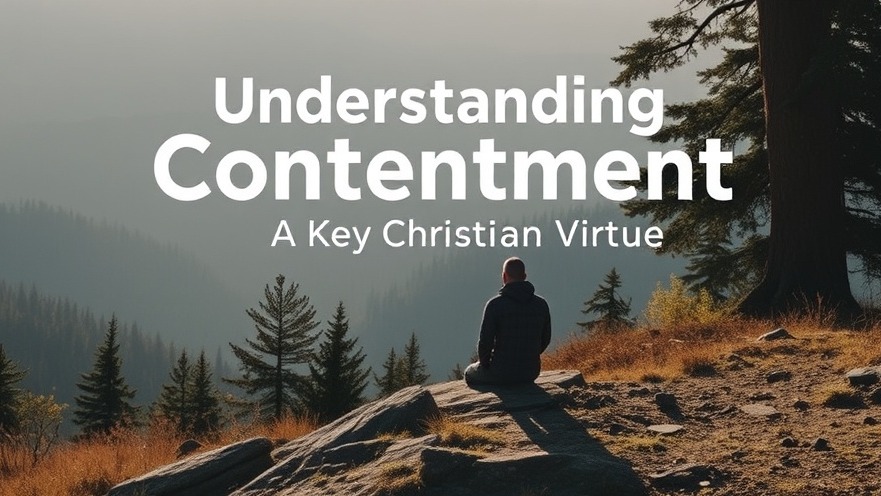
Understanding Contentment: A Key Christian Virtue
In a world constantly pushing us to seek more — more possessions, more recognition, more everything — the teachings from 1 Timothy 6:6–10 challenge us profoundly. This biblical passage reminds Christians of the virtue of contentment, particularly with basic needs like food and clothing. Contentment is not merely about being satisfied; it is a deep-seated state of peace and acceptance rooted in faith.
The Spiritual Dangers of Discontent
Discontent often leads to unhealthy desires and distractions. The Apostle Paul warns that the love of money is a root of all kinds of evil. This unfettered pursuit can distort our priorities, making us chase after temporary gains instead of focusing on our spiritual growth and relationship with God. By practicing gratitude for what we have, we can shift our focus away from what we lack.
The Role of Community in Fostering Contentment
The community plays an essential role in nurturing contentment among believers. Sharing resources and supporting one another in times of need strengthens our bonds and helps us appreciate what we have. As part of a faith community, like the Salt Church or Walton Evangelical Church, we are encouraged to practice generosity and gratitude, which help foster a greater sense of satisfaction in our lives.
Practical Steps Towards a More Contented Life
Becoming content is a journey that involves several practical steps. Regularly reflect on your blessings, practice gratitude, and engage in prayer to refocus your thoughts on the eternal rather than the temporal. Additionally, limiting exposure to consumer culture can help maintain our contentment by reducing comparison with others.
As you ponder these insights from 1 Timothy, consider what it truly means to lead a life filled with contentment. Accept the beauty in simplicity, realizing that true joy stems from our faith rather than our worldly possessions.
 Add Row
Add Row  Add
Add 








Write A Comment